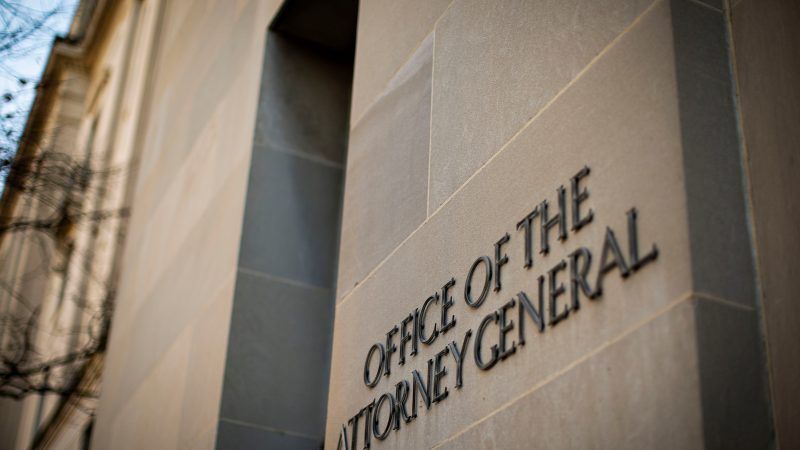Senate Investigation Finds Justice Department Undercounted Prison and Jail Deaths Last Year by Nearly 1,000
The report says the inaccuracies "deprived Congress and the American public of information about who is dying in custody and why."

The Justice Department's annual tally of deaths in state prisons and jails was short by nearly 1,000 last year, an investigation by the Senate Permanent Subcommittee on Investigations found.
States are required under the Death in Custody Reporting Act (DCRA) to submit data on deaths in prisons and jails to the Justice Department, but in a report released today, the committee says that the Justice Department has failed to effectively implement the law, undermining the accuracy of its data and congressional oversight of deaths in custody.
The committee and the Government Accountability Office (GAO) found that in the last year alone the department missed 990 prison and jail deaths that were reported on state websites, news articles, and other public databases.
Those failures have "deprived Congress and the American public of information about who is dying in custody and why," the report says. "This information is critical to improve transparency in prisons and jails, identifying trends in custodial deaths that may warrant corrective action—such as failure to provide adequate medical care, mental health services, or safeguard prisoners from violence—and identifying specific facilities with outlying death rates. DOJ's failure to implement this law and to continue to voluntarily publish this information is a missed opportunity to prevent avoidable deaths."
Despite the Constitution's bans on cruel and unusual punishment and excessive force, incarcerated people in prison systems and jails across the U.S. are regularly subjected to medical neglect, brutality, and unsafe living conditions.
Federal judges in both Arizona and Illinois recently held those state prison systems in contempt for failing to address gruesome medical neglect within their walls. The Justice Department has in recent years found unconstitutional conditions in prisons in Florida and Alabama, and it is investigating similar allegations in Mississippi and Georgia. In New York City, the infamous Rikers Island jail complex is under threat of being put in receivership by a federal judge because of a string of preventable deaths and chronic corruption.
Congress passed the DCRA in 2000 and reauthorized it in 2013. The law requires states to report deaths in prisons and jails. It also authorized the attorney general to cut up to 10 percent of federal law enforcement grant funding to states that fail to comply.
But a series of changes over the past several administrations have degraded what was supposed to be a strong law, the report says. In 2019, the Justice Department moved responsibility for the DCRA from the Bureau of Justice Statistics (BJS) to the Bureau of Justice Assistance (BJA). The latter office is responsible for federal grant-making, not tabulating data. The BJA then stopped publicly reporting the mortality data it collected, which the BJS had done annually for 16 years.
Since the switch between offices, the quality and accuracy of the data submitted to the Justice Department has plummeted. The subcommittee's investigation found that 70 percent of the records submitted to the BJA were missing at least one required field.
A WBUR investigation last year found 37 in-custody deaths that local sheriffs never reported to the Justice Department, and an analysis published earlier this year in The Appeal found that most states were not in compliance with the DCRA.
Under the 2014 reauthorization of the DCRA, the Justice Department was also supposed to submit a report to Congress by 2016 on how to use the data it collects to reduce prison and jail deaths, but the subcommittee says it learned that report won't be complete until 2024, eight years past the statutory deadline.
The investigation was also frustrated, the report says, by the Justice Department's lack of full cooperation. It refused to provide all the records the subcommittee requested.
"DOJ's resistance to bipartisan Congressional oversight impeded Congress' ability to understand whether DCRA 2013 had been properly implemented, delaying potential reforms that could restore the integrity of this critical program," the report says.
In response to a request for comment, the Justice Department cited an attorney general report issued last week on the department's compliance with the DCRA. The report agrees that "underreporting is widespread, and not the result of a small number of lagging or uncooperative states." As a result, it says, "degradation of data quality and completeness, as compared to previously available data collection methods, is considerable."
The attorney general's report says BJA is working to improve state compliance, and it recommends several legislative actions by Congress to strengthen the DCRA, including replacing the discretionary grant funding penalty with a mandatory one.


Show Comments (17)